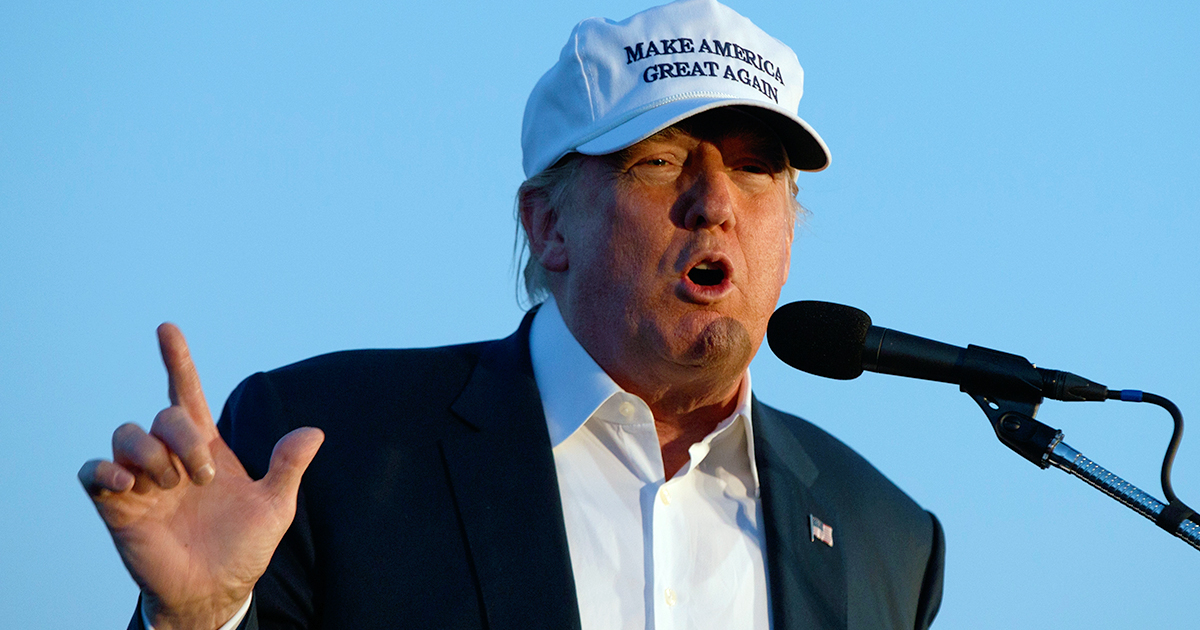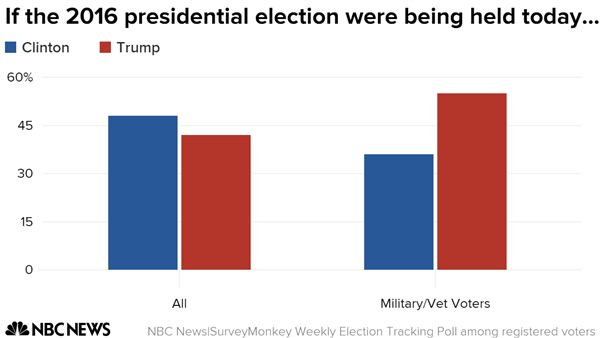What Donald Trump Said About Veterans With PTSD

By:
Republican presidential nominee Donald Trump implied on Monday that veterans suffering from post-traumatic stress disorder are less "strong" than their counterparts who "can handle" the trauma of warfare. The comments appear to play into a mental health stigma that many veterans face after they return to civilian life.
 AP/Evan Vucci - apimages.com
AP/Evan Vucci - apimages.com
Trump made the controversial remark when responding to a question about how he'd approach mental health treatment for veterans at a campaign event in Virginia, Politico reported. Though he vowed to make mental health and Veterans Affairs reform a priority as president, his suggestion that PTSD is a reflection of mental weakness has raised eyebrows.
Here are the lines in question:
"When you talk about the mental health problems, when people come back from war and combat — and they see things that maybe a lot of the folks in this room have seen many times over and you’re strong and you can handle it, but a lot of people can’t handle it. And they see horror stories. They see events that you couldn’t see in a movie. Nobody would believe it."
Shortly after the comments surfaced, 'PTSD' started trending on Twitter, with many criticizing Trump's characterization of the mental health condition.
Writer Ana Marie Cox argued that it was unlikely Trump intended to shame veterans with PTSD, but it seemed to demonstrate an unconscious bias against that group.
That bias runs deeper than Trump. According to a 2013 study published in Psychiatric Rehabilitation Journal, the perceived stigma on people with PTSD represents a significant barrier to mental health treatment for veterans. Many of the study participants "considered combat-related PTSD as less stigmatizing than other mental illnesses," but "reported difficulties with reintegration," the study authors wrote.
The Veterans Affairs website also lists "stigma" as one of the "barriers to care" for PTSD sufferers:
"When you are in the military, there are other things that may get in the way of seeking help. Military members may worry that talking about PTSD with doctors, other soldiers, or commanding officers will hurt their career. You may think if people in your unit learn you have PTSD they will see you as weak, or not trust you to be able to protect them. Or, you may feel that your medical records will be opened for other people to see." (Emphasis added.)
Criticism of Trump's comments came fast and hard on Monday, but it's yet to be seen whether they will have any lasting impact on his support among veterans.
 NBC News - nbcnews.com
NBC News - nbcnews.com
Trump currently leads Democratic presidential nominee Hillary Clinton in military support by nearly 20 points, a September NBC/SurveyMonkey poll found. That's in spite of the fact that Trump has offended some veterans by insulting Sen. John McCain (R-Ariz.) — who he claimed was "not a war hero" because he was captured and spent five years as a prisoner of war in Vietnam — and picking a fight with a Gold Star family whose son died in combat.
However, these controversies haven't done much to shake Trump's military support. As the Republican nominee, Trump benefits from a historically conservative-leaning constituency of military voters; but as Michael McPherson wrote earlier this year, he also benefits from long-standing dissatisfaction with America's political system, which has failed to bring "real answers or leadership to end the wars and bring our troops home."
"Asking why veterans support Trump is a legitimate question," McPherson wrote. "But the most important question is how do we meet the economic, social and security challenges before us in a way that addresses the needs of poor, working-class and average people. Failure to address these issues is why Trump has any support at all."
